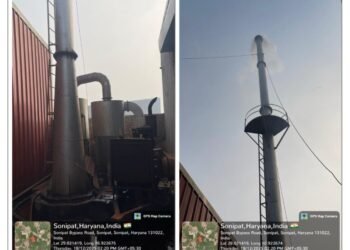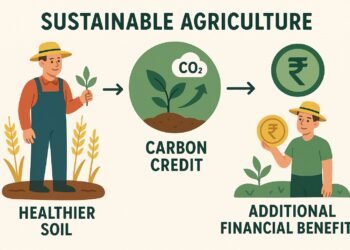Cities and Municipalities Lead the Way in Innovation and Adaptability
IndiaCSR News Network
MILAN: As the financial and environmental costs of resource depletion begin to affect economic growth worldwide, countries need to find ways to manage finite resources while meeting the needs of a growing and increasingly urban world population. By integrating sustainable consumption and production (SCP) patterns into national development planning and implementation, policy makers can make it easier and cheaper to produce goods and services more efficiently, with lower risks to humankind and the environment.
Recent research shows that improved efficiency can reduce energy demand by 50 to 80 per cent for most production and utility systems. Some 60 to 80 per cent improvements in energy and water efficiency are commercially viable in sectors such as construction, agriculture, hospitality, industry and transport.
The means to achieving such efficiency gains are outlined for the first time in a guidebook by the UN Environment Programme (UNEP) entitled, ‘Sustainable Consumption and Production: A Handbook for Policy Makers’, launched on the occasion of World Environment Day.
The handbook contains compelling data on both the impact of unsustainable consumption and production, and the efficiency gains to be made by mainstreaming SCP patterns.
The estimated 1.2 billion people still living in extreme poverty, depend on natural capital – the wealth derived from activities related to nature – far more than the affluent. Those on low income count nearly a third of their wealth in natural capital, while those on high income have approximately 4 times less dependency on natural capital.
Eco-system services, such as mangroves filtering water, and other ‘non-market’ goods can account for as much as 47 per cent, in India, to 90 per cent, in Brazil, of the so-called “GDP of the poor”, highlighting their vulnerability to pollution or climate change. Sustainable consumption and production is therefore essential for improving the lives of those living in poverty.
UN Under-Secretary-General and UNEP Executive Director Achim Steiner said, “The last century has witnessed a rapid transformation of our relationship with the natural world, with the escalating use of natural resources leading to environmental degradation. We are now operating at about 40 per cent above the earth’s budget. If world population and consumption rates continue according to business as usual, annual global resource extraction could triple from 2000 levels to 140 billion tons by 2050.”
“We must ask ourselves what the consequences of this pace of consumption and trajectory will be in a world that by 2050 will have to sustain up to nine billion people”.
“World Environment Day provides an opportunity for governments, institutions and individuals to become agents of change. UNEP’s Handbook provides practical yet far reaching proposals to promote prosperous economies and a healthy planet for generations to come,” he added.
According to the report, over the past two decades most of the economic growth came from the Asia-Pacific region, driven by a fast transition in a number of rapidly developing economies, most notably China. At the same time, over the past ten years, the prices of many natural resources have grown substantially and have also become increasingly volatile.
“Decoupling economic growth from resource consumption and from environmental impacts is a way of addressing this challenge and a key concept in sustainable consumption and production,” said Mr. Steiner.
For developing countries this would mean using innovative ways to leapfrog into a green economy structure, ensuring better delivery of services and access to resources in a way that conserves their natural resource base. In developed countries, resource efficiency strategies will be highly effective, but account must be taken of how much resource extraction is outsourced from developed countries to developing countries. Both require well designed public policies, a reason why this handbook is so important. In both the developed and developing countries resource efficiency is a necessary condition for sustainable development but it needs to be complimented with systemic changes in the way we plan and develop our infrastructure and in the way we take consumption decisions.
There are significant differences between the world’s regions, with Africa’s domestic material consumption being very low, at just 3.7 tonnes, reflecting a low material standard of living. In contrast, since 2000 Asia and the Pacific has been the most dynamic region both economically and in terms of resource use yet the efficiency with which materials are used has declined and population growth is now the least important driver of regional natural resource use. Latin America’s growth is linked to Asia’s boom, through the export of metals and fossil fuels to service infrastructure development and manufacturing in Asia.
In Eastern and Central Asian countries the economies have rebounded, resulting in growing resource use and while the European Union countries have been leading in developing policies for sustainable resource use, which is reflected in comparably low per-capita resource use levels, this is enabled, in part, through the outsourcing of many resource and emission intensive processes to other countries.
Cities have already shown that incorporating environmental protection into their policies is profitable in several ways. The EU, for example, estimates that the City of Vienna saved €44 million –and 100,000 CO2– between 2004 and 2007 through its ‘Ecobuy’ programme. The Namibian city of Windhoek adapted a dual piping system, reducing 5 to 7 per cent of the potable water demand. Its artificial aquifer recharge systems are adequate for the sub Saharan city to survive for two years without depending on ephemeral rivers.
In Buenos Aires, under their ‘Plan for Sustainable Mobility’, efforts are already showing economic returns on top of environmental ones as a result of improving the transport systems and reducing commuting time by 10-25 per cent (and up to 65 per cent in some cases). The multi-sector Palawan Council for Sustainable Development, in the Philippines, has facilitated the introduction of a pioneering initiative to try to promote zero carbon tourism in Palawan, implementing a clearing system for new resorts.
Chinese, Indian and other authorities are giving those who try to live more sustainably options, by introducing ecolabelling schemes, a system with a proven track record dating back to the 1970’s. In universities in Egypt, Kenya Tanzania, Mozambique and Mauritius, students are being educated in a program that combines sustainable lifestyle education with business development skills.
Within Asia, a study of 3 Chinese cities (Tianjin, Lanzhou and Qinhuangdao) reported by the Centre for Sustainable Consumption and Production, revealed that direct reductions in emissions and resource consumption in just one year had saved 20.36MW in electricity; 32,269 kilolitres in water; 14,008 kilolitres in oil, while waste was reduced by 24.42 tonnes and CO2 emission was reduced by 105.75 tonnes.
Most products and services are provided by the private sector, businesses therefore play a pivotal role in society’s shift towards SCP. Companies, in contrast to customers, have knowledge of the full life cycles of their products from resource extraction of its suppliers to the environmental impact caused after the product eventually breaks or becomes obsolete, and are typically good at translating their sustainability efforts into competitive advantages Producers of laundry detergents, for example, found that developing new detergents that would be effective at lower temperatures, saved their customers money, lowered the environmental impact of their product and gave them a distinct marketing advantage.
Collaboration has already started, examples including the International Standardization Organization, a network of national standards institutes, both public and private, from over 160 countries and Design for Sustainability. The Government of the U.S. Virgin Islands encouraged a public-private partnership between its Energy Ministry and a consortium comprising a specialist investment banker and technology service providers, with the ultimate aim of reducing dependency on fossil fuels by 60 per cent within 15 years. The programme is expected to pay for itself, after the initial investment, by savings in utility costs.
The UNEP guidebook contains a rich compilation of SCP case studies from all over the world, covering policy instruments, implementation processes, monitoring and evaluation methodologies and indicators.
The guidebook will assist governments and other organizations to use SCP policies and tools to realize national development goals through greater resource efficiency gains, lower production costs and job creation. Better management of consumption patterns through smart policies and smart living will help create an alternative model of economic growth, in which the needs of the many are better met by the smarter management of precious resources.
By using this handbook policymakers and other institutional stakeholders will be able to integrate the concept of SCP into national development planning and create solutions for sustainable development challenges.
(IndiaCSR is renowned and No.1 news portal in the domain of CSR, which is live since 2009. www.indiacsr.in is for you and your organization. Kindly support and promote it. We welcome reactions to stories, comments on issues that interest you, feedback & comments from your side to make it more purposeful and resourceful, we will carry it in our portal. IndiaCSR is carrying an Exclusive Coverage of ‘World Environment Day’. Please send News,articles or features. we will carry it in our portal. Also please keep sending your valuable feedback at editor@indiacsrnetwork.com. You can find updates at Facebook IndiaCSR News Network )




















